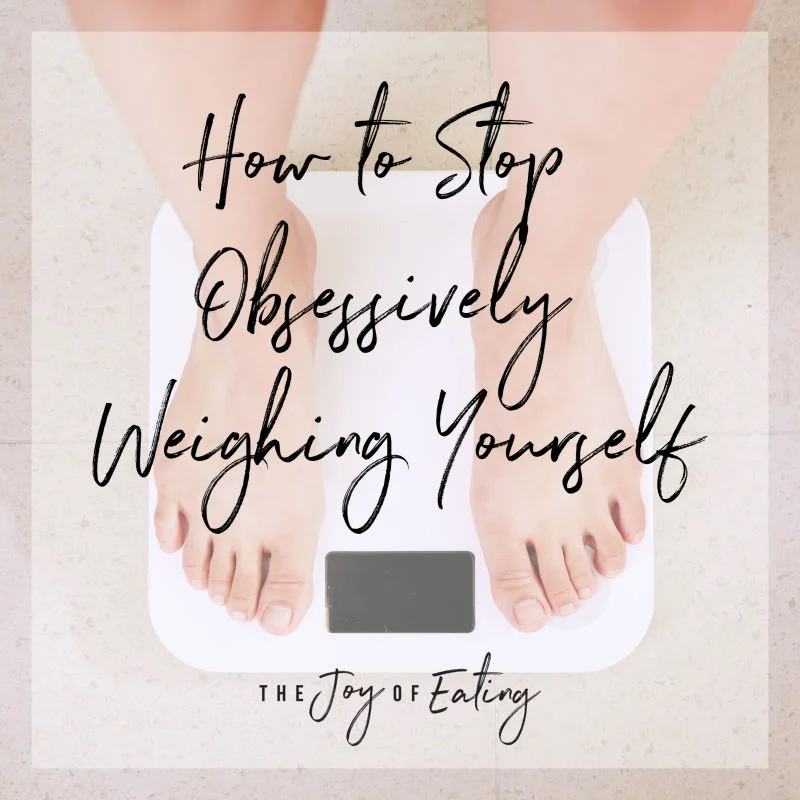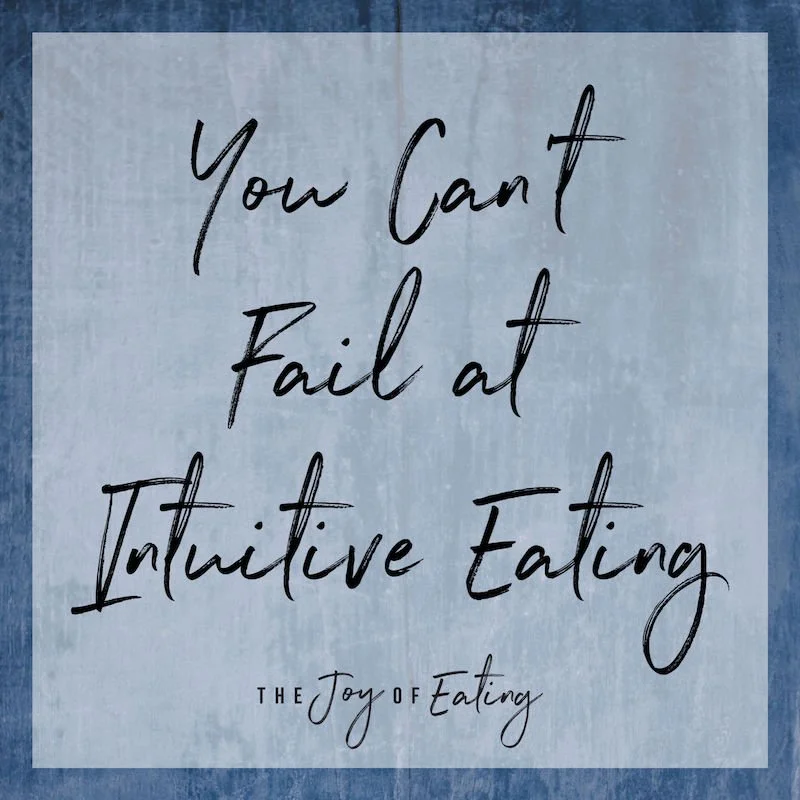One of the principles of intuitive eating is movement for pleasure. But if you have a fraught relationship with movement, it’s probably not that pleasurable to you! This post explores what joyful movement is, and gives tips for how to learn to like exercise.
Read MoreSharing some exciting news on the blog today!
Read MoreIf you’re someone who has tried to diet, only to be foiled by intense hunger cues, you might be wondering why do I feel so hungry when I’m trying to stick to a diet? This post discusses the biological basis of how hunger cues work, and how intuitive eating can help normalize your hunger cues so you’re able to feed yourself adequately and appropriately throughout the day.
Read MoreIf you’ve been diagnosed with diabetes, it might feel like you have to be on a super strict diet for life. In reality, “all food fits” is still true for you. This post explores intuitive eating for diabetes with non-diet nutrition for diabetes management.
Read MoreOne common question I get from readers and clients is should I take supplements? In this post, I’ll dive into the different kinds of supplements, potential risks and benefits, and how to know whether a supplement is helpful for you.
Read MoreA diagnosis of diabetes and intuitive eating may feel like they conflict, especially with all the rigid advice out there. In reality, intuitive eating for diabetes is possible. In this post, learn about why intuitive eating is a natural fit for diabetes management.
Read MoreWondering why am I feeling hungry after eating? Intuitive eating is all about using internal cues, like hunger and fullness, to guide eating. But sometimes Intuitive Eating is taught as a "hunger/fullness" diet, which overlooks the importance of satisfaction, which is an even more important cue to stop eating. Learn the difference between satisfaction and fullness in intuitive eating.
Read MorePretty much everyone who is interested in intuitive eating holds some desire for weight loss, because otherwise they’d already be a pretty intuitive eater. We live in a culture that is obsessed with dieting and thinness. So of course the question of can I diet to lose weight before starting intuitive eating is a common one. In this post, I dive into why you don’t have to lose weight before starting intuitive eating, and why you can start eating more intuitively today!
Read MoreWe all grow up steeped in diet culture, so of course we’re constantly battling diet mentality. Dealing with these thoughts can make eating really stressful! Read this post to learn tools for how to reframe diet mentality thoughts in intuitive eating.
Read MoreAre you stuck in an unhealthy relationship with the scale? Weighing yourself frequently can contributes to an unhealthy relationship with food and your body, create stress, and frankly, isn’t even that accurate. Learn why you should get rid of your scale and tips for how to stop obsessively weighing yourself. Remember, you are so much more than a number!
Read MoreFeeling guilty for emotional eating? Stop. Even though one principle of intuitive eating is coping with emotions without food, it’s still totally OK to emotionally eat. Learn why emotional eating isn’t bad for you, and can be a perfectly acceptable way to cope with strong emotions.
Read MoreDiet advice is all about restriction and willpower. It tells you to “just say no” to all the foods you love and enjoy - no wonder so many people are trapped in a cycle or restriction and binging! If you’re wondering how to make peace with food and become a more intuitive eater, it starts with giving yourself permission to eat the foods you love.
Read MoreFeeling inadequate after seeing someone’s before and after weight loss picture? We’ve all seen how photoshop, different poses and clothes can distort things, but the problem with these pictures goes deeper than that. The truth about before and after weight loss pictures is that they’re a fleeting moment in time, and never communicate the whole story.
Read MoreOne of the most important aspects of health is having strong social connections. Yet diets that are frequently prescribed, supposedly to improve health, lead to social isolation by making it challenging for you to be flexible and enjoy social events that involve food. In this post, learn how dieting affects your social life and harms your health, and why flexible, intuitive eating supports wellness and longevity.
Read MoreWhen you look at eating practices and traditions around the world, one thing is clear: human beings were designed to be flexible around food. We have survived by being able to adapt our diet to whatever food is available in a wide variety of environments. Read this post to learn how you can debunk common diet myths and rules by looking at different cultures eating patterns and practices.
Read MoreIntuitive eating is hard to practice at first, but as I like to remind my clients, it is a practice - not a diet. If you’re struggling as you try to make peace with food, read this post to learn why you can’t fail at intuitive eating.
Read MoreIntuitive eating sometimes gets translated into eat whatever you want, when you want it. It’s an inaccurate and oversimplified translation, and creates a perceived barrier for people with financial difficulties in adopting intuitive eating. If you’re concerned about finances, read this post on how to eat intuitively on a budget.
Read MoreFeeling like you can’t stop eating? Honor your hunger is the first principle of intuitive eating, but if you feel like you’re constantly hunger, it might feel extra scary to feed yourself. If you feel like your hunger is out of control, read this post to answer the question “why do I feel hungry all the time?”
Read More


















